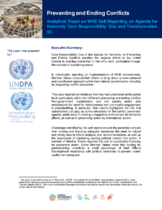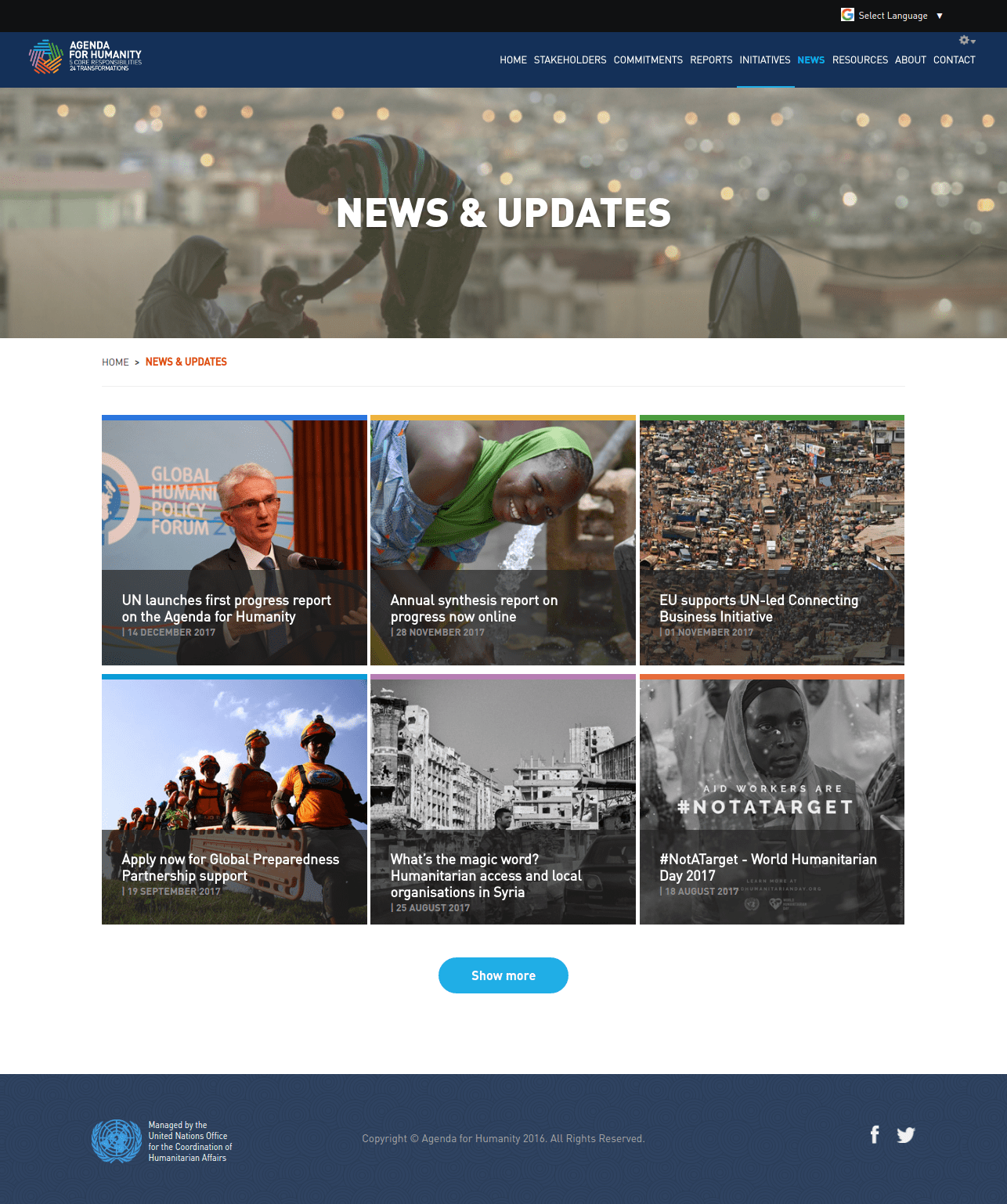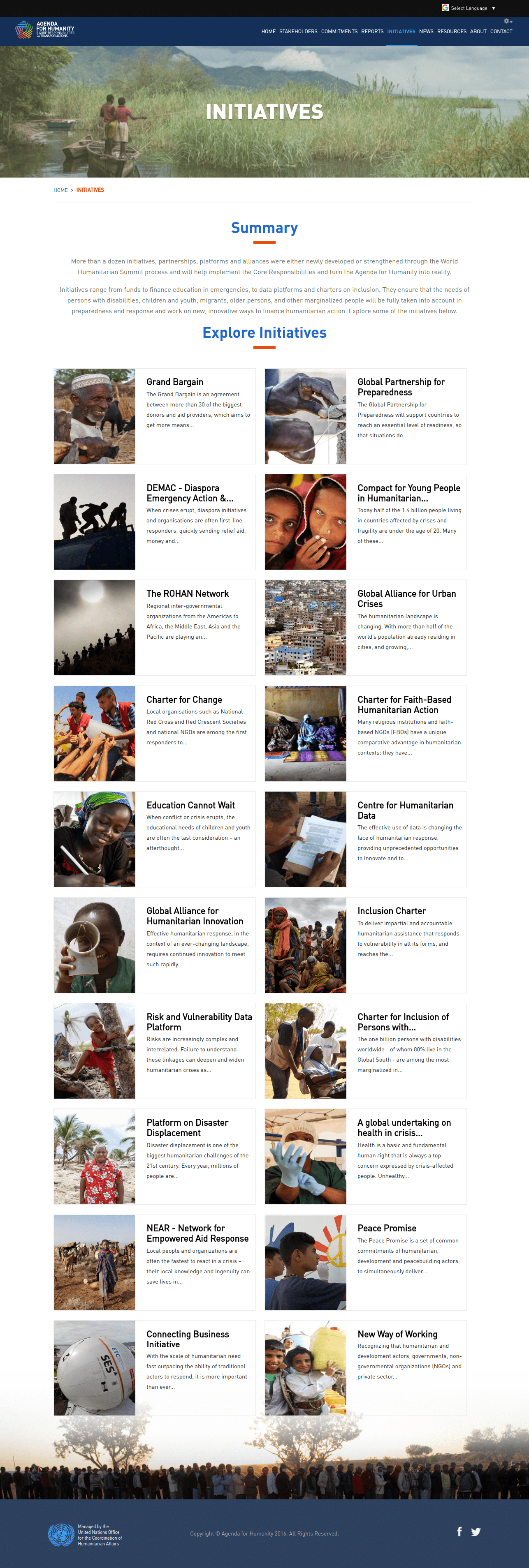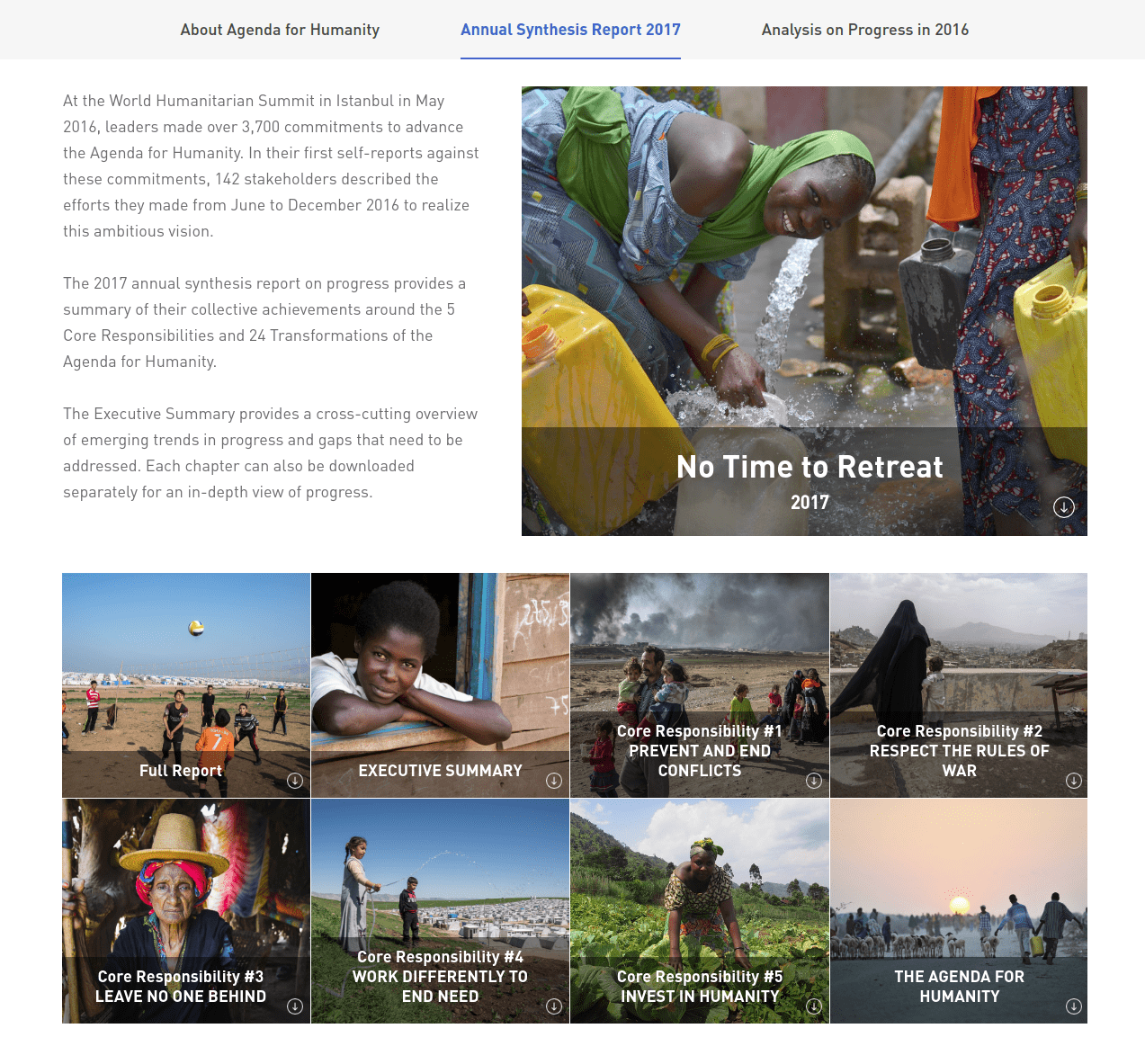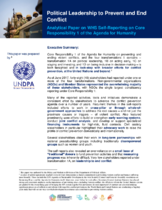In the Agenda for Humanity the humanitarian community is called to act upon five core responsibilities to reduce suffering and deliver better for the millions of people in need of humanitarian assistance.
Political leadership to prevent and end conflicts
An end to human suffering requires political solutions, unity of purpose and sustained leadership and investment in peaceful and inclusive societies.
We are seeing a significant global increase in protracted and intractable conflicts, causing ever larger and more profound humanitarian crises, prolonged human suffering, political turmoil, huge economic and financial costs and large-scale displacement and refugee flows. Unless political leaders show the will to prevent and end crises, little will change for the millions of children, women and men who are caught up in these crises. Leaders—including UN Security Council members—must put compassion and courage at the heart of their collective decision-making. They must use all the leverage they have—political, economic and otherwise—to prevent conflicts and find solutions. And they need to put aside divisions to invest in peaceful and inclusive societies.
Agenda for Humanity Transformations
The Agenda for Humanity advocates for a number of strategic and normative transformations that are necessary in order to make it a reality.
To end and prevent conflict, stakeholders need to:

Demonstrate timely, coherent and decisive political leadership
Leadership to prevent and end conflict: More determined and bold leadership is required to set aside differences entrenched in political positions and to guide national discourse and decision-making that supports the humanity of others. Leaders should use their positions to deliver better outcomes for people in need and to commit to sustained engagement.

Act early
Act early: National governments, regional and international organizations must be more proficient in identifying early signs of human rights violations and deteriorating situations and be willing to act before situations further deteriorate. The international community, including the UN Security Council, must demonstrate greater resolve to work quickly towards political unity to address tensions and deescalate violence. Success stories on conflict prevention and resolution should be captured and promoted.

Remain engaged and invest in stability
Stay and invest: Governments and the international community must invest in dedicated and sustained capacity to handle more than one crisis at a time. This must go alongside predictable and longterm political engagement and financial investment in promoting peaceful and inclusive societies, strengthening legitimate institutions and reactivating markets and economies.

Develop solutions with and for people
Be inclusive in decision making: Robust engagement of people and civil society in political and governance processes is critical to sustained conflict prevention and resolution. Women and women’s groups must be actively involved in decision-making. Young people part of developing and implementing solutions that create stability. Faith-based dialogue supported to promote stability, reconciliation and social cohesion. Knowledge, technology and influence of business leaders used to promote sustainable solutions to bring stability and dignity to people’s lives.
Summary of Commitments made

* The count includes Core, Individual and Joint commitments
At the World Humanitarian Summit in May 2016, leaders from Member States, civil society and humanitarian organizations rallied around the Agenda for Humanity’s call for sustained leadership to prevent and end conflicts and invest in peaceful and inclusive societies. Click below to browse stakeholders' commitments to Prevent and End Conflict.
Progress Reports
Click the button below to browse progress reports submitted for achievements in Core Responsibility One.


